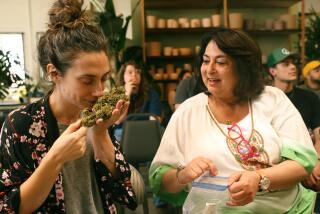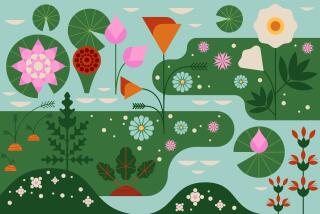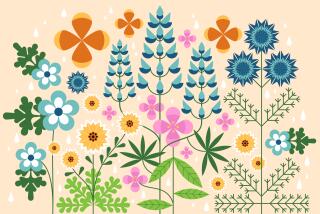Plant Seeds Now if Aim Is Spring, Summer
- Share via
Question: I would like to grow plants from seed for my spring and summer garden. Is now the time to start, and how should I go about it?
D.V., Costa Mesa
C.S., Irvine
Answer: Now is the perfect time to grow plants from seed for a spring and summer garden.
Growing plants from seeds has a variety of benefits. Not only is it economical, but you also get the satisfaction of having a hand in your plants’ beginnings, and your selection is much greater. Many nurseries have a much broader selection of vegetable types in seed packets, and mail-order companies carry hundreds of varieties. Some vegetables, such as carrots, can only be grown from seed.
At this time of year, most spring and summer crops should be started in containers, preferably indoors in a controlled environment. Many different types of containers can be used to start seeds. Just make sure that whatever you use has drainage holes and is of uniform depth so that all seeds get the same amount of water. Choose a soil that is light and drains easily.
When planting seeds, there is no need to add fertilizer because the seed itself will provide sufficient nutrients for its early growth.
Moisten the soil before planting your seeds. This can be done by soaking the container in another container with water.
Small seeds can be spread over the soil, covered with a very small amount of potting soil, then misted. Larger seeds can be gently pushed into the soil and covered.
It is important to keep your soil moist while the seeds are germinating, because if they dry up, they will die. To do this, you can cover them with plastic; but be careful that the soil doesn’t get too wet, or fungus will grow.
Warmth is also important. In general, the warmer the conditions, the more quickly seeds will germinate. Put the seeds under lights, in a sunny window, or on top of the refrigerator, the latter of which tends to be a warm spot.
You will probably not have to rewater your seeds until they germinate, although you should do so if they dry out. Once seedlings appear, place containers in good, strong light. Make sure to harden off your seedlings before planting outdoors. This refers to gradually exposing them to the outside environment.
Have a problem in your yard? University of California Cooperative Extension (UCCE) Master Gardeners are here to help. These trained and certified horticultural volunteers are dedicated to extending research-based, scientifically accurate information to the public about home horticulture and pest management. They are involved with a variety of outreach programs, including the UCCE Master Garden hotline, which answers specific questions. You can reach the hotline at (714) 708-1646 or send e-mail to ucmastergardeners@yahoo
.com. Calls and e-mail are picked up daily and are generally returned within two to three days.






